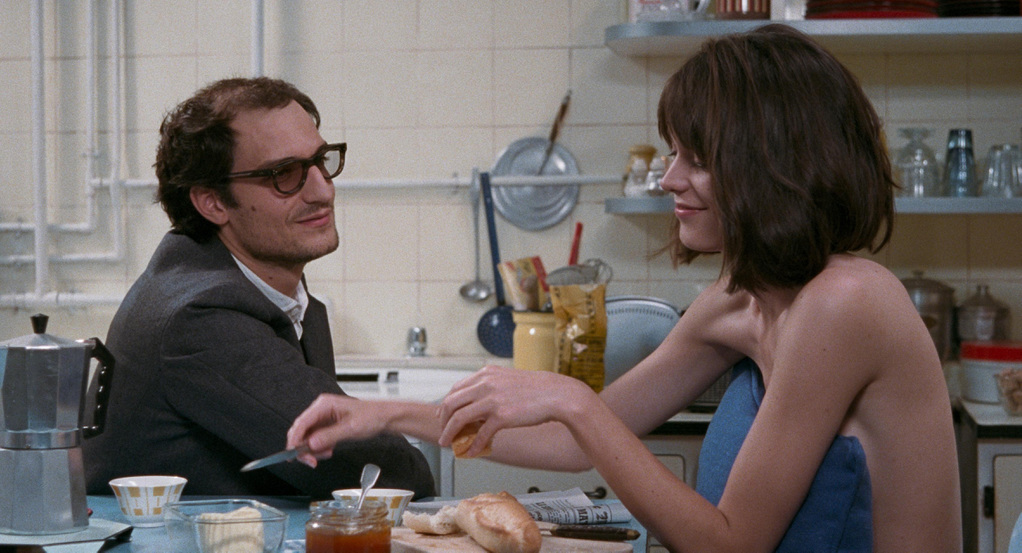Part of the French Film Festival UK 2017
Godfather of the French New Wave Jean-Luc Godard is humanised rather than deified in Michel Hazanavicius’ dramatic, rom-com biopic. A much-appreciated return to form for Hazanavicius after his more recent cinematic misfire in 2014 with The Search, Redoubtable pays homage to both the magic and the madness of Godard. Following the auteur beginning from the eve of the May ’68 riots in France and beyond, the challenge Godard faces in balancing his contradictory roles as performer for the bourgeois elite, anarchist for the Maoist movement and lover to his ingénue bride acts as the primary catalyst for conflict during the film.
Cinematic allusions to Godard’s work are littered throughout Redoubtable. Fourth wall breaking. Voyeuristic shots of naked women. Jazz soundtrack. All fodder for the average cinephile and New-Wave aficionado. Hazanavicius is not concerned with enlightening the audience to the reasoning behind Godard’s creative and personal endeavours, instead opting to emulate the nuances of the artist’s body of work and character. Redoubtable is less of an exercise in innovative cinema as it is in imitative, and in doing so is successful.
Emblematic of the film’s desire for imitation is Louis Garret’s performance as Godard himself; Garrel immerses himself in the filmmaker’s ego and insecurities. Godard is depicted in a variety of ways: as comic relief, as the narrative’s tragic anti-hero, as a philosophical radical. The fact Garrel can condense these vastly different roles into one man speaks volumes about the effectiveness of his performance. Stacy Martin is less assured in her performance as Anne Wiazemsky, Godard’s muse/wife whose memoir provided much material for the film. Martin thrives in depicting Wiazemsky’s cultish devotion to Godard’s genius, yet fails to fully sell the character’s eventual emancipation from her husband/director.
Redoubtable works best as a holistic love letter to Godard, exposing both the man’s talent and temperament. Hazanavicius does not break new ground in interpreting the intricacies nor philosophy behind arguably the French New-Wave’s most acclaimed auteur; yet that was never his intention. Godard’s inner battle between being an artist or an activist is an efficient summation of his character, and worthy of a cinematic adaptation.
